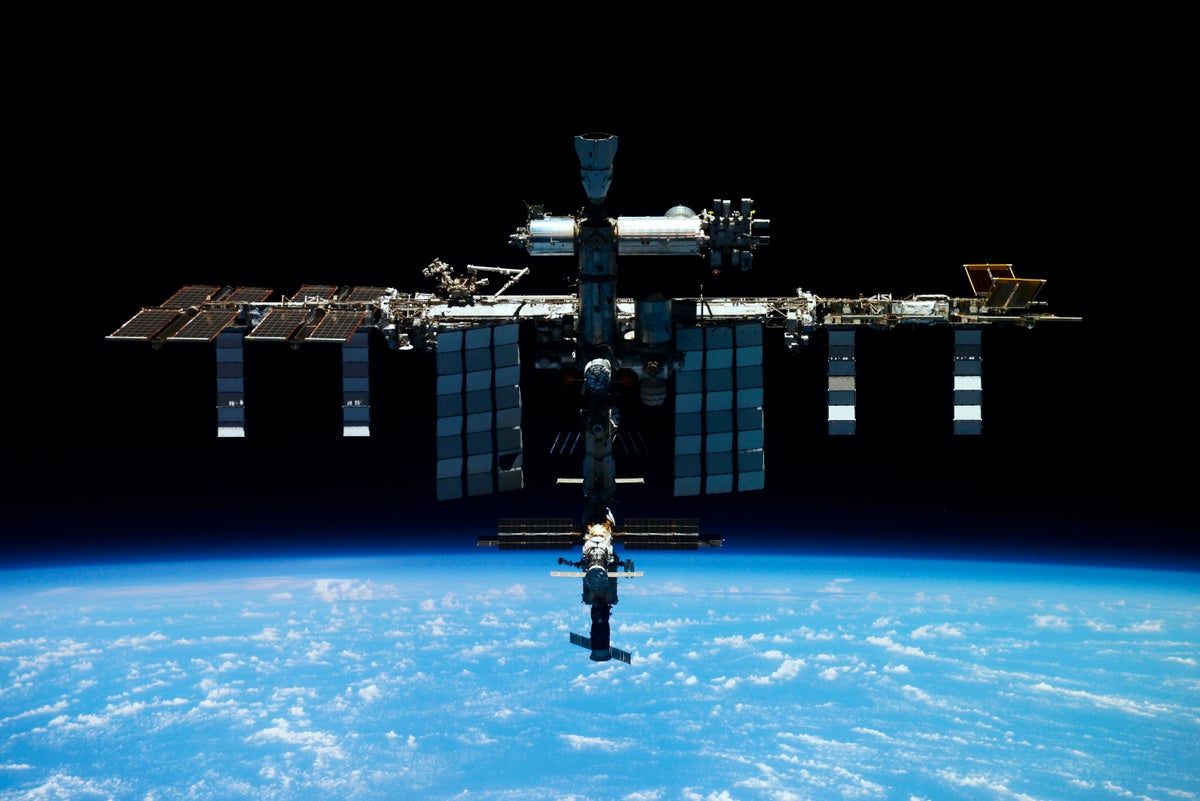
A coolant leak from an uncrewed Russian supply ship docked at the International Space Station resulted from an external impact and not a manufacturing flaw, Russia's space corporation said Tuesday.
The leak from the Progress MS-21 cargo ship was spotted on Feb. 2 and followed a similar leak from a Soyuz crew capsule in December.
Russian space officials said the earlier leak was caused by a tiny meteoroid that left a small hole in the exterior radiator and sent coolant spewing into space. But the new leak from another ship raised doubts about that theory, and Russia's state space corporation Roscosmos launched a probe into the incident to check whether it could have resulted from a manufacturing defect.
NASA said its specialists were assisting their Russian counterparts in the troubleshooting of the leak.
Following checks at Russian space factories and launch facilities and a close inspection of the cargo ship before it was dumped, Roscosmos concluded that the leak resulted from an “external impact” similar to the one that caused December's leak from the Soyuz crew capsule. On Tuesday. Roscosmos posted a close shot of the Progress MS-21 showing a 12-millimeter (0.5-inch) hole in its external radiator, which it said hadn't been spotted before.
After ruling out the manufacturing flaw, Roscosmos cleared the launch of a new Soyuz crew capsule that should replace the damaged one.
Russian Cosmonauts Sergey Prokopyev and Dmitri Petelin, and NASA astronaut Frank Rubio were supposed to ride the Soyuz they used to arrive at the station to return to Earth in March, but Russian space officials decided that higher temperatures resulting from the coolant leak could make it dangerous to use. Roscosmos announced that the new Soyuz MS-23 capsule to replace it will be launched in automatic mode on Friday and dock at the station on Sunday.
Since it will travel in uncrewed mode to expedite the launch, a replacement crew will now have to wait until another Soyuz capsule is ready, meaning that Prokopyev, Petelin and Rubio will have to stay at the station until September, pushing their mission to close to a year.
NASA has said it took part in all the discussions and agreed with the plan.
Besides Prokopyev, Petelin and Rubio, the space station is home to NASA astronauts Nicole Mann and Josh Cassada; Russian Anna Kikina; and Japan’s Koichi Wakata. The four rode up on a SpaceX capsule last October.
Roscosmos also announced Tuesday that Russia will extend its participation in the International Space Station until 2028, reversing an earlier statement that said it could opt out of the project earlier.







